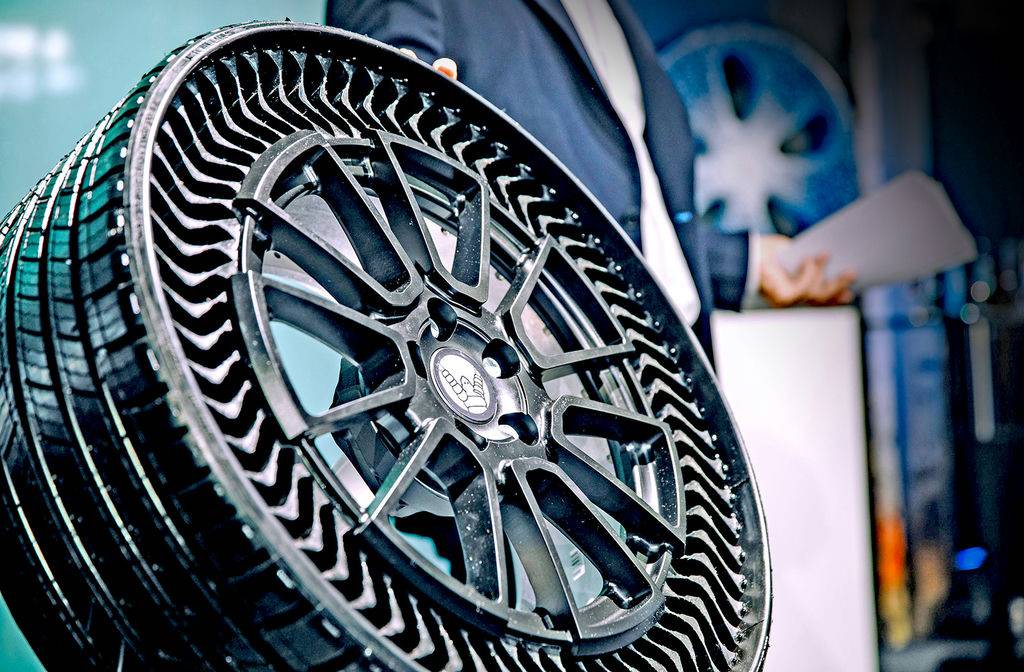Michelin and GM, two companies that have been making very significant investments in additive manufacturing just presented a disruptive concept for an airless, 3D printed fully recyclable car tire. The Uptis Prototype represents a major advancement toward achieving Michelin’s VISION concept, which was presented at the Movin’On Summit in 2017 as an illustration of Michelin’s strategy for research and development in sustainable mobility.
The VISION concept introduced four main pillars of innovation: airless, connected, 3D printed and 100% sustainable (entirely renewable or bio-sourced materials). Uptis demonstrates that Michelin’s vision for a future of sustainable mobility is clearly an achievable dream, although we can’t help but wonder which AM technology will be used to produce a few hundred million car tires a year. Probably not filament extrusion…
Through work with strategic partners like GM, who share our ambitions for transforming mobility, we can seize the future today, Florent Menegaux, Chief Executive Officer for Michelin Group.
The Uptis Prototype is re-engineered for today’s passenger vehicles, and it is also well suited to emerging forms of mobility. The vehicles and fleets of tomorrow — whether autonomous, all-electric, shared service or other applications — will demand near-zero maintenance from the tire to maximize their operating capabilities.
“General Motors is excited about the possibilities that Uptis presents, and we are thrilled to collaborate with Michelin on this breakthrough technology. Uptis is an ideal fit for propelling the automotive industry into the future and a great example of how our customers benefit when we collaborate and innovate with our supplier partners,” said Steve Kiefer, Senior Vice President, Global Purchasing and Supply chain, General Motors.
These innovations combine to eliminate compressed air to support the vehicle’s load and result in extraordinary environmental savings: approximately 200 million tires worldwide are scrapped prematurely every year as a result of punctures, damage from road hazards or improper air pressure that causes uneven wear. There is no doubt that these advancements through the Uptis Prototype demonstrate Michelin’s and GM’s shared commitment to delivering safer, more sustainable mobility solutions. Considering that, each year, automobiles produce 246 million waste tires in the United States alone, this is a very welcome turn of events.
Source: 3dprintingmedia.network


